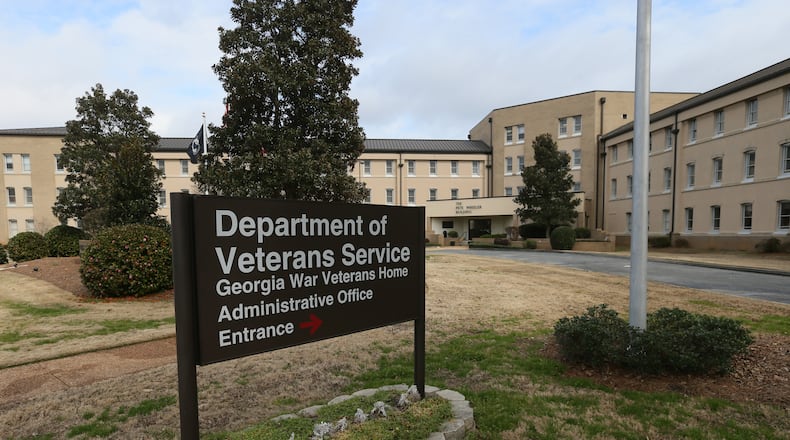The suicide rate among veterans increased slightly in Georgia and across the nation between 2017 and 2018, according to a U.S. Veterans Affairs Department report released Thursday.
In Georgia, the rate per 100,000 veterans rose from 27.9 to 29.3. In all, 208 Georgia veterans took their lives in 2018, up from 194 the year before. More than two-third killed themselves with firearms.
Nationwide, the suicide rate rose from 31 per 100,000 in 2017 to 32 in 2018, when 6,435 died by suicide. The suicide rate among all U.S. adults in 2018 was 18.4.
The VA pointed to several factors: isolation, divorce, the death of a spouse, sleep disorders, traumatic brain injuries and mental health problems.
The agency highlighted a 2.4% drop in the suicide rate among veterans who received recent VA care, from 29.3 to 28.6 per 100,000 veterans. VA Secretary Robert Wilkie called that “an encouraging sign as the department continues its work and shares what we learn with those who care for and about veterans.”
Georgia drew national attention in April of last year, when two veterans shot themselves to death outside VA hospitals in Dublin and Decatur over the span of a weekend. On Feb. 10, a third veteran shot himself to death in his room at the Georgia War Veterans Home in Milledgeville.
That month, Georgia Gov. Brian Kemp agreed to join a federal initiative for preventing suicides among U.S. service members, veterans and their families. Called the Governor’s Challenge to Prevent Suicide, the effort focuses on creating a statewide plan.
Meanwhile, the number of U.S. troops who took their own lives reached 260 in the first half of this year, a nearly 4% increase from the same period last year when 251 suicides were recorded in the military, according to a Defense Suicide Prevention Office report released last month. The report does not provide statistics for military bases, several of which are located in Georgia.
Military leaders cited many possible factors, including repeated war-zone deployments and financial concerns, anxiety and isolation amid the coronavirus pandemic. They have provided prevention training at military hospitals and clinics and are scrambling to boost mental health care and financial counseling.
About the Author
Keep Reading
The Latest
Featured



